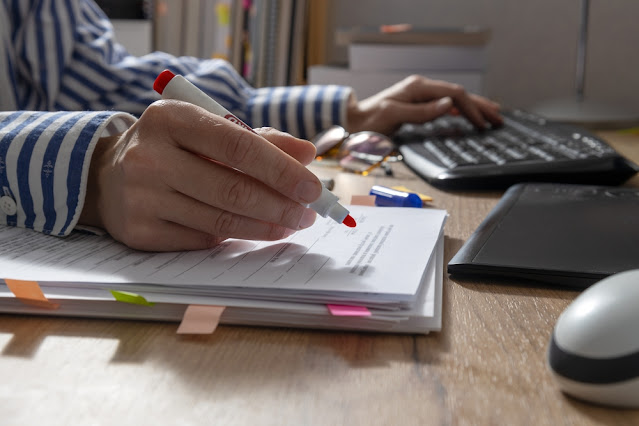Introduction:
In the realm of publishing, making sure a book has high quality is crucial. Book proofreading is an important phase in the procedure. Eliminating errors, improving readability, and polishing the final output all benefit greatly from proofreading. Whether you're an aspiring author or an experienced writer, it's critical to comprehend the significance and critical elements of book proofreading. We'll discuss what you should know about book proofreading in this blog article and how it can improve the caliber of your work.
Book proofreading explained:
The meticulous review of a manuscript for grammar, spelling, punctuation, and typographical problems is known as book proofreading. It emphasizes on fixing errors and enhancing the text's clarity, coherence, and overall flow. The manuscript is usually proofread after it has undergone developmental editing and copy editing.
What a Book Proofreader Does:
An expert who thoroughly checks a manuscript for faults and inconsistencies is known as a book proofreader. They have an excellent sense of detail and a comprehensive knowledge of language, punctuation, and style rules. A proofreader makes that the book is formatted correctly and free of typographical, spelling, and punctuation errors. Additionally, they look for uniformity in the manuscript's layout, style, and tone.
Issues and Common Errors Addressed in Book Proofreading
Among the faults and problems that are addressed during book proofreading are:
Spelling and grammar mistakes are fixed by proofreaders, who also fix awkward sentence patterns. They also make sure that capitalization and punctuation conventions are followed throughout the work.
b) Typographical Errors and Inconsistencies: Proofreaders look for and fix typographical mistakes like repeated words, missing letters, or inconsistencies in the spacing between words. They also correct layout, numbering, and bullet point irregularities.
c) Style and Consistency: Proofreaders ensure that the formatting, tone, and style of the book are all consistent. They guarantee that the manuscript's headings, subheadings, fonts, indents, and spacing are all consistent.
d) Clarity and Readability: Proofreaders make the material more readable and clear overall. They advise rephrasing sentences, getting rid of any jargon or ambiguity, and making sure that paragraph transitions are seamless.
The Value of Proofreading Books:
Proofreading is important for a number of reasons.
a) An error-free reading experience: A book with lots of mistakes can be annoying and make reading less enjoyable. By removing errors, proofreading makes sure your audience has an easy and delightful reading experience.
b) Professionalism and Credibility: A book that has been well-proofread demonstrates professionalism and raises your author's credibility. It indicates your dedication to creating a high-caliber product.
b) Improved Clarity and Flow: A proofreader polishes the language to make it clearer, shorter, and more engrossing. They remove any obstacles that can prevent readers from understanding the story or obstruct the narrative's flow.
d) Preventing Miscommunication: The risk of miscommunication is reduced by fixing mistakes and inconsistencies in the manuscript. This guarantees that the intended message is accurately conveyed to readers.
Working together with a book proofreader
It's critical to develop open lines of communication and give proofreaders the appropriate instructions while dealing with them. Think about the following actions:
a) Select a Reliable Proofreader: Find a proofreader who has expertise in the type of writing you do. Verify their credentials, recommendations, and examples of their prior work.
b) Provide Instructions and Expectations: Clearly express your needs, preferred writing styles, and any particular issues you want the proofreader to address.
c) Coordinate Deadlines: Taking into account the length and complexity of the work, decide on a reasonable schedule for the proofreading procedure.
d) Examine the Proofreader's Suggestions: After getting the text that has been proofread, carefully go over the questions and suggested adjustments. Before making any judgments, talk to the proofreader about any uncertainties or worries.
Conclusion:
A crucial step in the publication process, book proofreading makes sure that your text is flawless, polished, and ready to enthrall readers. Understanding the value of book proofreading and working with a qualified proofreader will help you improve the caliber of your writing, build your author's reputation, and provide readers with an outstanding reading experience. Spend money on book editing to make your writing crystal clear and precise.





No comments:
Post a Comment